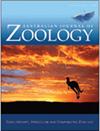新南威尔士州西南部受威胁的扁足类动物的调查和管理工作的空间优先级
IF 1
4区 生物学
Q3 ZOOLOGY
引用次数: 0
摘要
确定物种的分布对难以使用标准技术检测的隐物种来说是具有挑战性的。mallee蠕虫蜥蜴(Aprasia inaurita Kluge, 1974)是一种潜伏的爬行动物,在新南威尔士州被列为濒危动物。为了更好地了解该物种的潜在分布,我们建立了物种潜在分布模型(Maxent),并于2018 - 2022年在Scotia Mallee地区(一个适合栖息地的地区)进行了潜在栖息地调查,并设置了陷阱和人工避难所(陶瓦屋顶)。我们在8个监测环节中完成了11 587个陷阱夜和3200个贴图检查。在此期间,我们利用屋顶瓦片探测到6种脊椎动物(全部为蜥蜴),利用陷阱探测到40种,但没有发现mallee蠕虫蜥蜴。对来自新南威尔士州的mallee蠕虫蜥蜴现有记录的评估表明,该州构成了其大陆范围的东北边缘,在新南威尔士州西南部的大片地区,该物种的数量显然很低。大多数记录位于私人土地上的刺草或豪猪草群落内或附近。物种分布模型为物种保护工作的空间优先排序提供了有用的输出,区域范围的地图显示,斯科舍马利研究区域的大部分地区都包含可能适合马利蠕虫蜥蜴的栖息地。然而,在某些情况下,由于夏季最高温度和土壤有效水量较高,该地区单个细胞的生境适宜性得分较低。我们预计,与气候变化相关的温度升高可能会进一步降低该地区未来栖息地的适宜性。本文章由计算机程序翻译,如有差异,请以英文原文为准。
Spatial prioritisation of survey and management efforts for a threatened pygopodid in south-western New South Wales
Determining species’ distributions is challenging for cryptic species that are difficult to detect using standard techniques. The mallee worm-lizard (Aprasia inaurita Kluge, 1974) is a cryptic reptile in the family Pygopodidae, listed as Endangered in New South Wales. We modelled the species’ potential distribution (Maxent) to improve understanding of the species’ distribution and surveyed potential habitat in the Scotia Mallee region (an area with suitable habitat) from 2018 to 2022, with pitfall traps and artificial refuges (terracotta roof tiles). We completed 11 587 pitfall trap-nights and 3200 tile checks over eight monitoring sessions. Over this period, we detected six vertebrate species (all lizards) using roof tiles and 40 species with pitfall traps, but no mallee worm-lizards. Evaluation of existing records of the mallee worm-lizard from NSW suggested that the state constitutes the north-eastern edge of its continental range, with the species apparently present in low numbers across a wide swathe of south-western NSW. Most records were located within or near to spinifex or porcupine grass (Triodia spp.) communities, on private land. Species distribution modelling provided outputs that are useful for spatial prioritisation of conservation efforts for the species, with region-wide maps showing that much of the Scotia Mallee study area contains potentially suitable habitat for the mallee worm-lizard. However, habitat suitability scores for individual cells in this area were low, in some instances, because of high maximum summer temperatures and soil available water capacity. We anticipate that increasing temperatures associated with climate change may further reduce the suitability of habitat in this area in the future.
求助全文
通过发布文献求助,成功后即可免费获取论文全文。
去求助
来源期刊
CiteScore
2.40
自引率
0.00%
发文量
12
审稿时长
>12 weeks
期刊介绍:
Australian Journal of Zoology is an international journal publishing contributions on evolutionary, molecular and comparative zoology. The journal focuses on Australasian fauna but also includes high-quality research from any region that has broader practical or theoretical relevance or that demonstrates a conceptual advance to any aspect of zoology. Subject areas include, but are not limited to: anatomy, physiology, molecular biology, genetics, reproductive biology, developmental biology, parasitology, morphology, behaviour, ecology, zoogeography, systematics and evolution.
Australian Journal of Zoology is a valuable resource for professional zoologists, research scientists, resource managers, environmental consultants, students and amateurs interested in any aspect of the scientific study of animals.
Australian Journal of Zoology is published with the endorsement of the Commonwealth Scientific and Industrial Research Organisation (CSIRO) and the Australian Academy of Science.

 求助内容:
求助内容: 应助结果提醒方式:
应助结果提醒方式:


